In today’s fast-paced world, achieving healthy and glowing skin is a top priority for many individuals. While skincare products and treatments play a significant role, the importance of nutrition in promoting skin health cannot be overstated. Your skin reflects what you eat, making it essential to nourish it from within. Let’s delve deeper into the world of skin nutritions and discover how you can enhance your glow naturally.
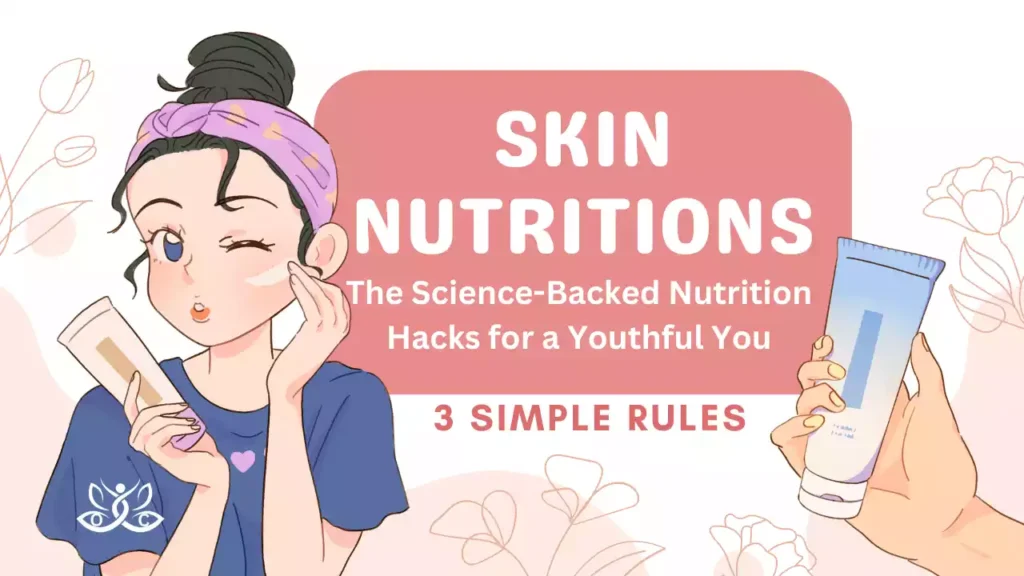
Skin Nutritions: Eat Your Way to Flawless! & Radiant You
Introduction to Skin Nutrition
Skin nutrition is the study of how food and nutrients affect the health and appearance of your skin. It’s a field that’s gaining more and more attention as people realize the important link between what we eat and how we look.
While topical skincare products can play a role in maintaining healthy skin, what you eat is just as important. Just like the rest of your body, your skin needs essential nutrients to function properly and stay healthy.
Here are some of the key benefits of good skin nutrition:
- Promotes overall skin health
- Helps prevent wrinkles and signs of aging
- Improves skin hydration
- Can help heal wounds faster
- May reduce the severity of acne and other skin conditions
Importance of Nutrition for Skin Health
The old adage “you are what you eat” rings true especially when it comes to your skin health. Just like the rest of your body, your skin needs essential nutrients to function properly and maintain a healthy appearance.
Eating a balanced diet rich in fruits, vegetables, whole grains, and lean protein provides the building blocks your skin needs to stay healthy. These nutrients play a vital role in various processes that keep your skin looking and feeling its best:
- Skin cell production and repair: Protein is an essential component of all cells, including skin cells. Consuming adequate protein ensures your body has the necessary resources to repair and replace damaged skin cells.
- Hydration: Water is crucial for maintaining skin’s elasticity and plumpness. Dehydration can lead to dry, flaky skin.
- Protection from free radical damage: Antioxidants help neutralize harmful free radicals that can damage skin cells and contribute to wrinkles and signs of aging.
- Reducing inflammation: Certain foods can promote inflammation in the body, which can manifest as skin conditions like acne or rosacea.
Role of Diet in Skin Health
Fruits and vegetables: Packed with antioxidants, vitamins, and minerals, fruits and vegetables are powerhouses for skin health. Aim for a variety of colorful options to ensure you’re getting a good range of nutrients.
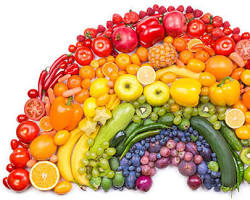
Lean protein: Protein is essential for building and repairing skin tissues. Opt for lean protein sources like fish, chicken, beans, and lentils.
Healthy fats: Healthy fats, like omega-3s and omega-6s, help keep skin hydrated and supple, and may also reduce inflammation. Fatty fish, nuts, seeds, and vegetable oils are good sources of healthy fats.
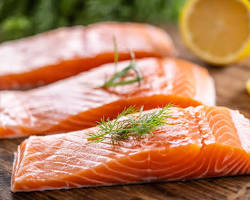
Whole grains: Whole grains provide sustained energy and fiber, which can help regulate blood sugar levels and potentially reduce inflammation that can contribute to skin problems.
Impact of Nutrition on Skin Aging
As we age, our skin naturally loses collagen, the protein that gives skin its structure and elasticity. This can lead to wrinkles, fine lines, and sagging skin.
While there’s no magic bullet to prevent aging altogether, a healthy diet rich in the following nutrients can help:
Vitamin C: A powerful antioxidant, Vitamin C helps stimulate collagen production and protects skin from sun damage. Citrus fruits, berries, and leafy green vegetables are all good sources of Vitamin C.

Vitamin A: Promotes cell turnover and helps keep skin smooth and supple. Sweet potatoes, carrots, and spinach are all good sources of Vitamin A.
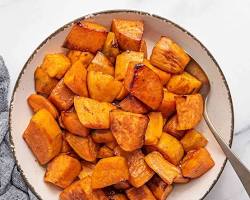
Vitamin E: An antioxidant that helps protect skin from sun damage and may improve skin hydration. Nuts, seeds, and avocados are all good sources of Vitamin E.
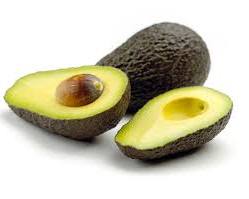
By following a balanced diet that incorporates these essential nutrients, you can support your skin’s health and potentially slow down the signs of aging.
Essential Nutrients for Healthy Skin
Just like the rest of your body, your skin thrives on a balanced diet rich in essential nutrients. These nutrients provide the building blocks your skin needs to function properly and maintain a healthy appearance. Here’s a look at some key players:
Vitamins for Skin Health
Vitamin A: Promotes cell turnover and helps keep skin smooth and supple. Sweet potatoes, carrots, and spinach are all good sources of Vitamin A.

Vitamin C: A powerful antioxidant, Vitamin C helps stimulate collagen production and protects skin from sun damage. Citrus fruits, berries, and leafy green vegetables are all good sources of Vitamin C.

Vitamin E: An antioxidant that helps protect skin from sun damage and may improve skin hydration. Nuts, seeds, and avocados are all good sources of Vitamin E.

B vitamins: Play a role in cell metabolism and can help maintain skin health. Good sources of B vitamins include whole grains, legumes, and nuts.
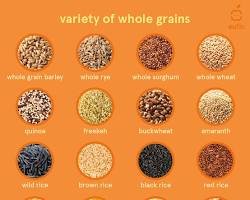
Niacin (vitamin B3): May help reduce redness and improve skin barrier function. Salmon, chicken, and mushrooms are good sources of niacin.
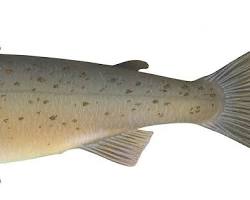
Minerals for Skin Health
Zinc: Supports wound healing and helps regulate oil production in the skin. Shellfish, lean meats, and nuts are good sources of zinc.

Selenium: An antioxidant that helps protect skin from sun damage. Brazil nuts, seafood, and eggs are good sources of selenium.

Antioxidants for Skin Health
Antioxidants help neutralize harmful free radicals that can damage skin cells and contribute to wrinkles and signs of aging. Here are some antioxidant powerhouses to incorporate into your diet:
Fruits and vegetables: Packed with a variety of antioxidants, fruits and vegetables come in a rainbow of colors, each offering a unique range of antioxidant benefits.
Green tea: Rich in polyphenols, green tea has anti-inflammatory properties that can benefit skin health.
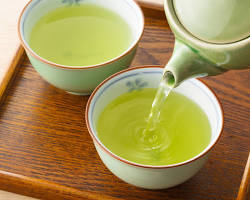
By incorporating these essential nutrients into your diet, you can provide your skin with the building blocks it needs to stay healthy and radiant. Remember, a balanced diet is key!
Foods for Healthy Skin
Nourishing your skin from within is just as important as using topical skincare products. Here’s a breakdown of some key food groups to prioritize for healthy skin:
Fruits and Vegetables:
Fruits and vegetables are superstars for skin health. They are packed with essential vitamins, minerals, and antioxidants that fight free radical damage and keep skin healthy. Aim for a variety of colorful options to ensure you’re getting a good range of nutrients:
Citrus fruits: Rich in Vitamin C, which helps stimulate collagen production and protects skin from sun damage.
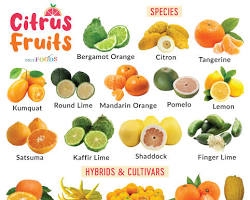
Berries: Loaded with antioxidants and Vitamin C to fight free radicals and promote skin health.
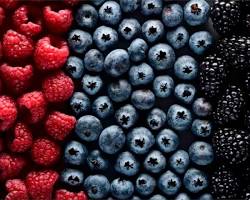
Leafy green vegetables: Excellent sources of Vitamins A, C, and K, all important for maintaining skin health.
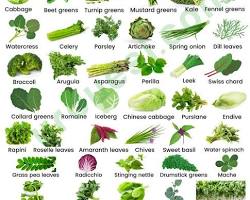
Leafy green vegetables
Bell peppers: Rich in Vitamin C and antioxidants, including beta-carotene, which can help protect skin from sun damage.

Tomatoes: A source of lycopene, an antioxidant that may help protect skin from sun damage.
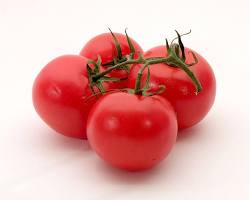
Healthy Fats:
Healthy fats, like omega-3s and omega-6s, are essential for keeping skin hydrated and supple, and may also reduce inflammation. Include these sources in your diet:
Fatty fish: Salmon, mackerel, and herring are all excellent sources of omega-3 fatty acids.
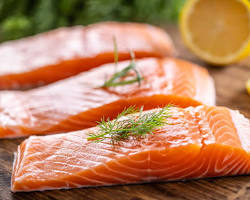
Nuts and seeds: Walnuts, flaxseeds, and chia seeds are all good sources of omega-3 and omega-6 fatty acids.
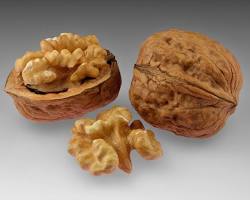
Avocados: A great source of healthy fats, including monounsaturated fats, which can help improve skin hydration.

Protein Sources:
Protein is an essential building block for healthy skin cells. Opt for lean protein sources to provide your body with the amino acids it needs for skin repair and maintenance:
Chicken and turkey: Lean protein sources that provide essential amino acids for skin health.

Beans and lentils: Plant-based protein sources packed with fiber and nutrients that benefit skin health.
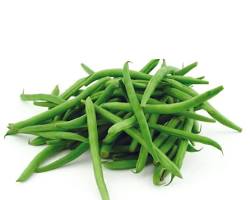
Eggs: A good source of protein and biotin, a B vitamin that may help improve skin health.

Remember, a balanced diet is key! By incorporating a variety of these foods into your diet, you can provide your skin with the nutrients it needs to look and feel its best.
Hydration and Skin Health
Hydration is absolutely crucial for healthy skin! Water makes up a large portion of your skin cells (around 64%), so it makes sense that staying hydrated has a significant impact on how your skin looks and feels. Here’s how:
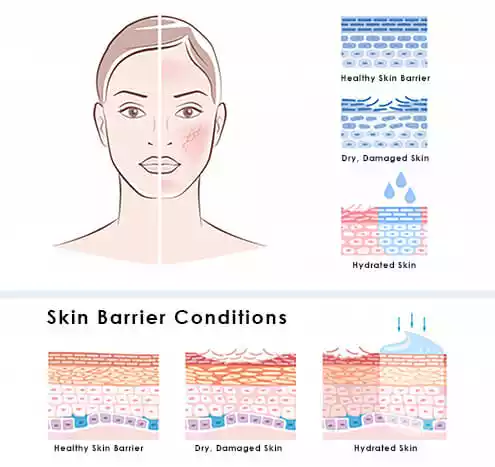
- Plumpness and Elasticity: When you’re well-hydrated, your skin cells are plumped up, giving your skin a healthy glow and reducing the appearance of wrinkles and fine lines. Dehydration, on the other hand, can make skin look dull and sallow.
- Skin Barrier Function: Proper hydration helps maintain the skin’s natural barrier function, which is like a shield that protects your skin from irritants and helps prevent moisture loss. Dehydration can weaken this barrier, making your skin more susceptible to dryness, irritation, and even infections.
- Waste Removal: Water helps flush toxins and waste products out of your body, which can help keep your skin clear and healthy. Dehydration can lead to a buildup of toxins, potentially contributing to breakouts and other skin problems.
How much water should you drink?
There’s no one-size-fits-all answer, but a general recommendation is to drink around eight glasses of water per day. However, factors like activity level, climate, and overall health can influence your individual needs. Here are some signs you might be dehydrated:
- Feeling thirsty
- Fatigue
- Dark urine
- Dry mouth
- Headaches
If you’re concerned about your hydration levels, talk to your doctor or a registered dietitian. They can help you determine how much water is right for you.
Tips for Staying Hydrated:
- Carry a reusable water bottle and sip on it throughout the day.
- Include water-rich fruits and vegetables in your diet, like watermelon, cucumber, and celery.
- Choose water over sugary drinks whenever possible.
- Pay attention to your urine color. Pale yellow is a good sign, while dark yellow indicates dehydration.
By staying hydrated, you’re not only doing your skin a favor, but also supporting your overall health and well-being.
Lifestyle Factors Affecting Skin Nutrition
While diet plays a major role in skin health, there are other lifestyle factors that can significantly impact how your skin absorbs and utilizes nutrients. Here are three key areas to consider:
1. Sun Protection:
- Sun exposure is a major contributor to premature skin aging and can worsen various skin conditions.
- Ultraviolet (UV) rays from the sun damage skin cells and break down collagen, leading to wrinkles and loss of elasticity.
- To protect your skin’s nutrition and overall health, practice daily sun protection:
♦Limit sun exposure: Avoid peak sun hours (generally 10 am to 4 pm) whenever possible.
♦Wear protective clothing: Cover up with long sleeves, pants, and a wide-brimmed hat.
♦Sunscreen: Apply a broad-spectrum sunscreen with SPF 30 or higher every day, even on cloudy days. Reapply every two hours, or more often if sweating or swimming.
2. Stress Management:
- Chronic stress can wreak havoc on your skin health in several ways:
♦It can disrupt the delicate balance of hormones in your body, potentially leading to breakouts and other skin problems.
♦Stress can also weaken your immune system, making your skin more susceptible to infections.
♦When stressed, you might be more likely to engage in unhealthy habits like poor sleep or unhealthy eating, which can further impact your skin’s health. - To promote healthy skin nutrition and manage stress, consider incorporating relaxation techniques like:
♦Meditation
♦Yoga
♦Deep breathing exercises
♦Spending time in nature
♦Getting enough sleep (ideally 7-8 hours per night)
3. Exercise:
- Regular exercise benefits your skin health in numerous ways:
♦It improves circulation, which helps deliver essential nutrients to your skin cells.
♦Exercise can help reduce stress hormones, potentially leading to clearer skin.
♦Sweating during exercise helps eliminate toxins from the body, promoting overall skin health.
♦Aim for at least 30 minutes of moderate-intensity exercise most days of the week.
By incorporating these lifestyle practices alongside a balanced diet, you can create a holistic approach to promoting healthy skin nutrition from the inside out.
Common Nutritional Deficiencies and Skin Issues
Here’s a breakdown of some common nutritional deficiencies and how they can affect your skin:
| Nutrient Deficiency | Skin Issues |
| Vitamin A deficiency | Dry, scaly skin; hyperkeratosis (rough, thickened skin); poor wound healing |
| Vitamin C deficiency | Dry, rough skin; easy bruising; poor wound healing |
| Vitamin E deficiency | Dry, scaly skin; wrinkles |
| B vitamin deficiencies (B2, B3, B6, B12) | Dermatitis (red, itchy, inflamed skin); seborrheic dermatitis (flaky, red patches on scalp and face); perioral dermatitis (red, scaly patches around the mouth) |
| Zinc deficiency | Dry, itchy skin; eczema; delayed wound healing; hair loss |
| Essential fatty acid deficiency | Dry, scaly skin; inflammation |
This table provides a general overview, and skin issues can have various causes. If you’re experiencing skin problems, it’s important to consult a doctor or dermatologist to determine the underlying cause and get appropriate treatment.
Here are some additional points to consider:
- Deficiencies often involve multiple nutrients, not just one.
- Skin problems can also be caused by allergies, infections, medications, and underlying health conditions.
- A doctor can perform tests to diagnose a nutritional deficiency and recommend treatment options, which may include dietary changes and/or supplements.
Remember, consulting a healthcare professional is always the best course of action if you have any concerns about your skin health or suspect a nutritional deficiency.
How to Improve Skin Nutrition
Here’s a roadmap to achieving healthy skin nutrition through a combination of dietary choices, supplements (used cautiously), and a good skincare routine:
1. Balanced Diet:
This is the foundation for healthy skin nutrition. Focus on incorporating a variety of nutrient-rich foods from all food groups:
- Fruits and vegetables: Aim for a rainbow of colors to get a wide range of vitamins, minerals, and antioxidants.
- Lean protein sources: Provide the building blocks for healthy skin cells. Choose options like fish, chicken, beans, and lentils.
- Healthy fats: Include sources like fatty fish, nuts, seeds, and avocados for skin hydration and suppleness.
- Whole grains: Offer sustained energy, fiber, and can help regulate blood sugar levels, potentially reducing inflammation that can contribute to skin problems.
2. Supplements (Use with Caution):
While a balanced diet is ideal, there might be cases where supplements can provide additional support. However, it’s important to approach them with caution:
- Consult a doctor or registered dietitian before taking any supplements. They can advise you on the appropriateness and dosage based on your individual needs and potential interactions with medications.
- Supplements are not a magic bullet and cannot compensate for a poor diet.
Some potential skin-supporting supplements to discuss with your doctor include:
- Vitamin C: A powerful antioxidant that helps stimulate collagen production and protect skin from sun damage.
- Vitamin E: An antioxidant that helps protect skin from sun damage and may improve skin hydration.
- Omega-3 fatty acids: May help reduce inflammation and improve skin hydration.
- Zinc: Supports wound healing and helps regulate oil production in the skin.
3. Skincare Routine:
A consistent skincare routine is essential to complement your internal efforts:
- Cleansing: Wash your face twice daily with a gentle cleanser to remove dirt, oil, and makeup.
- Moisturizing: Apply a moisturizer appropriate for your skin type to keep it hydrated and supple.
- Sun protection: Daily use of a broad-spectrum sunscreen with SPF 30 or higher is crucial to protect your skin from sun damage.
Remember: Consistency is key! By following a balanced diet, using supplements judiciously after consulting a doctor, and maintaining a good skincare routine, you can give your skin the best chance to be healthy and radiant.
Conclusion
Skin nutritions are all about nourishing your skin from the inside out. By understanding the link between what you eat and how your skin looks and feels, you can take charge of your skin health. Here’s a quick recap of the key takeaways:
- Diet is Crucial: A balanced diet rich in fruits, vegetables, whole grains, and lean protein provides the building blocks your skin needs to stay healthy.
- Essential Nutrients: Vitamins, minerals, and antioxidants play a vital role in protecting skin from damage, promoting cell turnover, and maintaining hydration.
- Hydration is Key: Water is essential for plump, supple skin and helps flush toxins out of the body.
- Lifestyle Matters: Sun protection, stress management, and regular exercise all contribute to healthy skin nutrition.
- Balanced Approach: Combine a healthy diet with a consistent skincare routine that includes cleansing, moisturizing, and sun protection for optimal results.
Remember, consistency is key! By making healthy choices about what you eat and taking care of your skin from the outside in, you can achieve a healthy, radiant complexion that reflects your inner well-being.
FAQs
Q. Can certain foods worsen skin conditions like acne?
A. While individual responses vary, certain foods high in sugar or processed ingredients may exacerbate acne in some individuals. It’s essential to pay attention to how your skin reacts to different foods and adjust your diet accordingly.
Q. Is it necessary to take supplements for healthy skin?
A. While supplements can help fill nutritional gaps, it’s best to prioritize obtaining nutrients from whole foods whenever possible. Supplements should complement a balanced diet, not replace it.
Q. Can drinking water improve skin hydration?
A. Yes, staying hydrated is crucial for maintaining skin moisture and elasticity. Drinking an adequate amount of water throughout the day can help keep your skin looking plump and radiant.
Q. How long does it take to see results from improving skin nutrition?
A. While individual results may vary, incorporating nutritious foods into your diet and adopting a consistent skincare routine can lead to noticeable improvements in skin health within a few weeks to months.
Q. Are there any specific vitamins or minerals that are especially beneficial for skin health?
A. Vitamins C and E, along with minerals like zinc and selenium, are particularly beneficial for promoting skin health and combating signs of aging. Including a variety of nutrient-rich foods in your diet ensures you receive a range of essential nutrients for healthy skin.
12 Days of Self-Care Target | Secrets of Revitalize Your Well-being!

In return, I would like to extend my support by visiting your website as well. I believe in fostering a sense of community and reciprocity, and I’m eager to see what you have to offer on your platform.
You’re welcome! Thank you for your understanding. If you have any specific questions, topics, or areas of interest you’d like to explore, feel free to share them. Whether it’s about technology trends, scientific discoveries, literary analysis, or any other subject, I’m here to provide information and assistance. Just let me know how I can assist you further, and I’ll be happy to help!
Usually I do not read article on blogs however I would like to say that this writeup very compelled me to take a look at and do so Your writing taste has been amazed me Thanks quite nice post